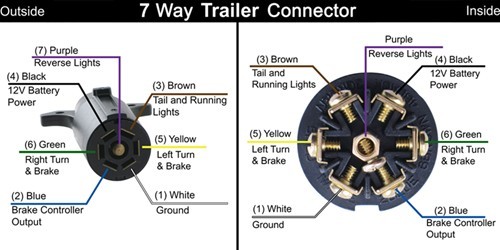handirifle
Veteran Member
This is interesting to me. Why is one of the wires in the 7 pin plug designated the 12v battery charging wire, if it will not handle the load of charging a battery?
All of my RV 7 pin plugs have been wired this way and I have never had an issue. What makes his setup different? I am missing something I guess. It seems to me running the battery of an RV completely down is a very real possibility. Is there something in the RV limiting how fast it charges or how many amps it draws from the tow vehicle?
All of my RV 7 pin plugs have been wired this way and I have never had an issue. What makes his setup different? I am missing something I guess. It seems to me running the battery of an RV completely down is a very real possibility. Is there something in the RV limiting how fast it charges or how many amps it draws from the tow vehicle?

